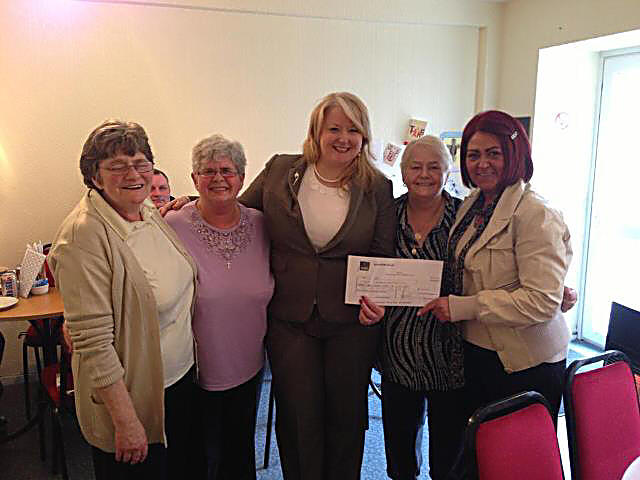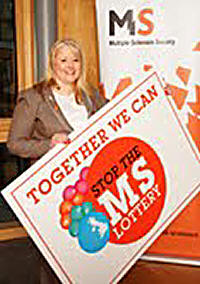|
Drugs, they afflict so many people. And of
course it isn’t only those people who are directly involved but their
families too. It isn’t easy to keep on trying to help someone – mother,
son, father, brother, sister – who has got drawn into this apocalyptic
scene.
I was glad to visit the Stonehouse Family
Support Group this week. These folk are volunteers online and on the
phone trying hard to help the families of people with drugs problems to
cope in the best way possible.
I joined them for the
opening of their new café, Open Spaces Community Café, at The Cross,
Stonehouse, and gave them a bit of a donation. Find out more about them
at:
http://www.openspaceministries.org

The group provides the kind of support and
help that can really make a difference. Talking to other people in
similar situations, finding out how they manage to provide support and
help towards recovery is vital when it comes to tackling this pervasive
problem.
Poverty and deprivation can lead people down
this path. That’s why the Scottish Government is so determined to try to
narrow that gap between rich and poor and make sure everyone gets a fair
chance.
Often, families feel they are to blame but
that’s not true. A relative’s drugs misuse is not your fault. Parents in
particular can feel a sense of guilt and failure and recognisng that
it’s not their fault can be a very positive step forward.
Talking to people who’ve been there, done
that, goes a long way to helping families really help open up the lines
of communication between the drug user and his or her family. That’s a
big step in the right direction.
Regular readers will probably already be
aware that my Dad died as a result of Motor Neurone Disease (MND). I am
acutely conscious of the need to help people with the disease – and
their families – cope with the crisis. MND is actually a related group
of diseases affecting the motor neurons of the nervous system which are
degenerative, progressive and incurable.
After a while, and it isn’t very long, the
messages from the brain to the muscles just don’t work. Your body
doesn’t respond to the triggers any more. You can’t do anything for
yourself.
The disease starts out in different ways
with different people because it all depends on the location of the
neurons involved. Nobody knows the cause and a lot of research is going
on but there’s no sign of a cure in sight.
The Euan MacDonald Centre for MND Research
at Edinburgh University is developing an MND Voicebank. The idea is
that, because a lot of MND patients lose the ability to communicate
easily, the voicebank will provide a range of recorded voices which will
be used to create synthesized voices for those who have lost their
speech as a result of the condition.
So MND Scotland is a cause very close to my
heart and my home. I was just nine when my Dad was diagnosed with MND
and the years that followed as he bravely fought the disease brought my
whole family together as experts on the disease.
We also became determined to do everything
we could to help find out more about this illness, what causes it and
how the lives of sufferers can be made longer and better.
That is why I fully back this new research
project – what greater gift could a person give than to potentially help
people get back their own voice?
We know the current provision of
communication aids – which often sound robotic – leaves many patients
feeling frustrated and isolated.
An email went around the Parliament asking
people if they wanted to donate their voices. I recorded mine, as did
Neil Robinson from my office, not so much for posterity as for practical
purposes.
The centre, which is part
of the University of Edinburgh, is hoping to record more voices from the
over-40s, particularly men, and of people with Scottish accents other
than Edinburgh. So any of you male ex-pats in the right age range who
can do it, please contact Shuna Colville on
info@smart-mnd.org.
It was great to see what MND Scotland is
doing to help make the very limited lifespan of MND patients – on
average, no more than 14 months – better and I applaud them for it.
Multiple Sclerosis is another horrible
disease. Last Wednesday, along with my MSP colleagues, I pledged to help
make sure people living with MS in Scotland have access to the right
treatment, care and support, regardless of where they live.

I joined a reception in the Garden Lobby of
the Parliament to give my support to help make sure everyone with this
condition can draw down the same support.
Europe Day arrived in
Edinburgh on Thursday 9 May. St Andrew Square was swathed in sunlight as
people came along to see the Scottish Government and EU information
providers showcasing their countries and what the EU is doing in
Scotland.
There was an evening
reception at the Royal Society of Edinburgh which I enjoyed. It was a
rather grand affair in a spectacular building, one of the city’s prized
examples of the finest of Enlightenment architecture.
With the sudden upsurge
in the anti-EU vote at last week’s local elections in England and Wales,
we in Scotland need to be more conscious than ever of just how crucial
our membership of the EU is for our business and agricultural interests,
for social protection and our human rights, how many hours a week we
ought to be working, how much maternity leave women are entitled to,
protecting our children online and vital tools like the European Arrest
Warrant are enshrined in European law.
I recently learned of a
case where a wife snatched the couple’s two children from Scotland and
took them off to France to live. Thanks to the European Arrest Warrant,
she and the children were returned to Scotland.
As you may know, I chair
the European and External Relations Committee of the Parliament. You can
find out more about what the Committee does here:
http://www.scottish.parliament.uk/parliamentarybusiness/CurrentCommittees/29814.aspx
There is more general information about Scotland’s external relations
here:
http://www.scotland.gov.uk/Topics/International/Europe/About/Scotland-in-EU
|

